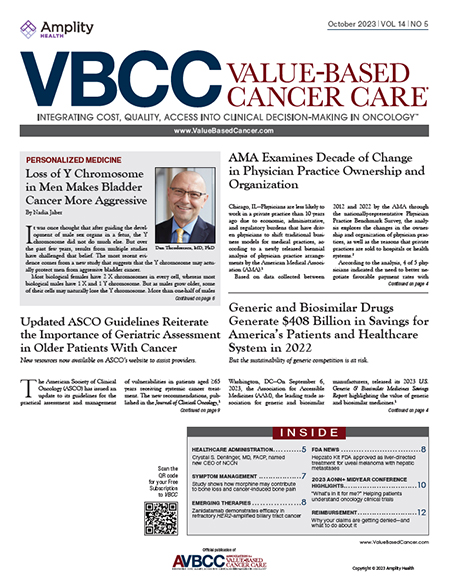The December 21 session of the Association for Value-Based Cancer Care (AVBCC) 10th Annual Summit discussed the impact of utilization management tools on cancer care stakeholders, including patients, providers, and the pharmaceutical industry. Bob Charles, MBA, Principal and Founder of GeneriSys, LLC, moderated this session.
Barbara McAneny, MD, MACP, FASCO, Chief Executive Officer of New Mexico Oncology Hematology Consultants, began the session by presenting data on the recorded wait times for prior authorization (PA) across radiology, infusion, radiation, and genetics/labs. The study found that the prior authorization process was costing $1319.04 per day.
Debra Patt, MD, PhD, MBA, Executive Vice President of Policy and Strategic Initiatives at Texas Oncology, said that although impact utilization management tools can be useful, they have gone too far and are diminishing the ability to treat patients. Dr Patt referred to a 2019 American Medical Association survey, in which 24% of physicians reported that prior authorization has led to a serious adverse event for a patient in their care.
Jeffrey Lombardo, PharmD, BCOP, Director of Pharmacy Business Development at Catholic Health, said that an automated approach for the sheer volume of prior authorizations would be ideal, but many healthcare systems are unable to use portals because of the protection of sensitive information. If portals were adopted, they would be hard to operationalize, Dr Lombardo stated.
Eric Dozier, Vice President of North American Oncology at Eli Lilly and Company, provided the pharmaceutical perspective, stating that 80% of scripts are rejected because of prior authorization and that many patients abandon treatment because of the PA process. Mr Dozier believes that if the focus is on value-based care, that gap needs to be closed.
Register for the AVBCC Summit to gain access to the archived 10-week agenda that is packed with timely insights and no-holds-barred debates that you need to understandoday’s cancer care ecosystem and trends for the future.


